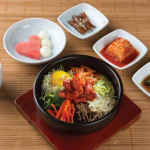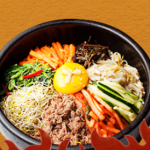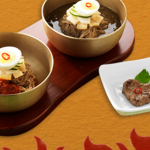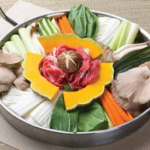Introduction
Korean cuisine has taken the world by storm with its tantalizing flavors and unique dishes. From mouthwatering barbecue to satisfying soups and stews, Korean food offers a gastronomic adventure like no other. However, for Muslims who adhere to halal dietary restrictions, the question arises: can they indulge in most of the Korean dishes? Let’s explore the compatibility of Muslim dietary requirements with Korean cuisine.
Bringing Halal and Korean Cuisine Together
Korean food is known for its vibrant and rich flavors, often derived from ingredients like soy sauce, fermented products, and various types of meat. As a Muslim, it is important to ascertain the halal status of these ingredients before indulging in Korean cuisine.
1. The Role of Meat in Korean Cuisine
One of the primary concerns for Muslims is the source and preparation method of meat. According to Islamic dietary laws, meat must come from animals that are slaughtered in a specific manner (zabiha) and blessed in the name of Allah. While Korean cuisine does incorporate pork and its by-products in many dishes, there are numerous options suitable for Muslims.
Classic Korean dishes like Bibimbap (mixed rice with vegetables and meat), Bulgogi (marinated grilled meat), and Dakgalbi (spicy stir-fried chicken) can all be enjoyed by Muslims, provided they are made with halal-certified ingredients. There are also establishments in Korea that offer halal versions of these dishes, catering specifically to the Muslim population.
2. Exploring Korean Ingredients
To further delve into the compatibility of Korean cuisine with Muslim dietary restrictions, it is essential to examine the nature of the ingredients commonly used in Korean dishes.
i. Soy Sauce: Traditional soy sauce is brewed from soybeans and wheat, which means it can be problematic for Muslims due to the presence of gluten. However, there are halal-certified soy sauces available in the market that are gluten-free, making them suitable for consumption.
ii. Gochujang: This fermented chili paste is a staple in Korean cooking. Fortunately, most commercially available gochujang products do not contain non-halal ingredients. However, it is always advisable to check the label or look for halal-certified options.
iii. Side Dishes (Banchan): Many Korean meals are accompanied by an assortment of side dishes, such as kimchi, pickles, and seasoned vegetables. These side dishes are generally halal-friendly, as they are predominantly made with vegetables, herbs, and spices.
3. Be Mindful of Hidden Ingredients
While Korean cuisine has a diverse range of dishes that can be enjoyed by Muslims, it’s crucial to remain cautious about hidden or unknown ingredients. Some Korean dishes may contain alcohol, gelatin, or non-halal additives, so it’s essential to communicate your dietary requirements when dining out or purchasing pre-packaged food.
Conclusion
The good news is that Muslims can savor a wide variety of Korean dishes, as long as they adhere to halal dietary guidelines and remain mindful of potentially non-halal ingredients. With halal-certified establishments and increasing awareness, it has become easier for Muslims to enjoy the delectable wonders of Korean cuisine.
So, the next time you find yourself sampling Korean food, rest assured that there are numerous options available to cater to your halal requirements. Embark on a culinary journey and experience the flavors that Korean cuisine has to offer while staying true to your Muslim beliefs.
FAQs (Frequently Asked Questions)
1. Are there halal versions of Korean barbecue available?
Yes, there are some establishments in Korea that offer halal versions of Korean barbecue, where the meats are sourced from halal-certified suppliers.
2. What about Korean street food? Can Muslims enjoy it?
While some Korean street food may contain non-halal ingredients, there are halal-certified street food vendors and halal options available, specifically catering to Muslim customers. It’s advisable to inquire about the ingredients and halal certification before indulging.
3. Can I consume any kimchi as a Muslim?
Kimchi is generally halal-friendly as it is primarily made from fermented vegetables, herbs, and spices. However, some variations may contain non-halal additives, so it’s important to check the ingredients or opt for kimchi produced by halal-certified manufacturers.
4. Is it possible to find halal-certified gochujang?
While not all gochujang brands are halal-certified, there are several options available in the market that do bear halal certification. Reading labels and choosing from trusted brands will ensure the gochujang you consume is suitable for Muslims.
5. Are vegetarian Korean dishes always halal?
Vegetarian Korean dishes are generally safe for Muslims to consume, as they do not contain meat products. However, it’s still important to be cautious of additives or seasonings that may not meet halal requirements. Always inquire about the ingredients or look for halal-certified options when in doubt.









